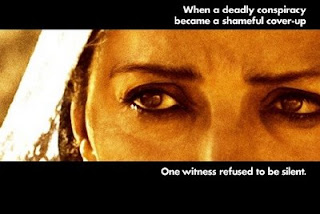 Reynolds Faculty Lily Mirjahangiri led a discussion prior to the showing of “The Stoning of Soraya M.,” an American drama film based on a true story about an Iranian village’s persecution of an innocent woman whose husband brought false charges against her. Her aunt tells a reporter her story to help get the word out about injustices against women in her country.
Reynolds Faculty Lily Mirjahangiri led a discussion prior to the showing of “The Stoning of Soraya M.,” an American drama film based on a true story about an Iranian village’s persecution of an innocent woman whose husband brought false charges against her. Her aunt tells a reporter her story to help get the word out about injustices against women in her country. “Stoning” was part of JSRCC’s Multicultural Enrichment Council’s “Around the World Through Movies” series. Originally from Iran, Mirjahangiri also shed light on Iran’s history, geography, political structure, and its relations with the U.S. She shared recent statistics and pictures on the societal and political roles of Iranian women inside and outside of Iran.
“Almost, everyone was crying during the brutal scenes,” said Mirjahangiri. “The movie communicated very powerful messages through the voices of those who can still suffer the penalty of stoning.”
The film was adapted from French-Iranian journalist Freidoune Sahebjam's 1990 book “La Femme Lapidée,” which has been banned in Iran. Click here for an interview with Cyrus Nowrasteh, the film’s director, and star Mozhan Marnò about their experiences dealing with the subject matter.


